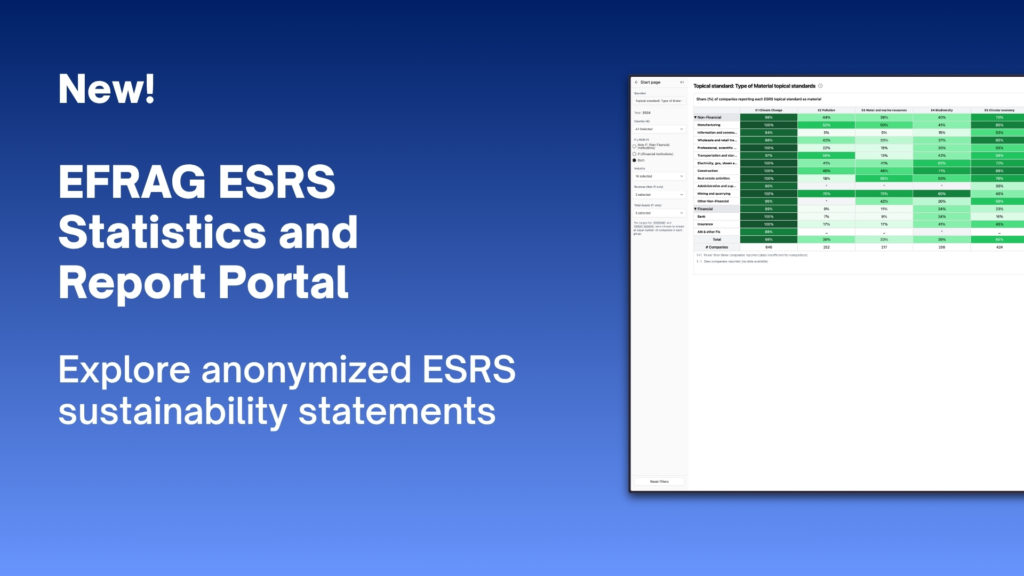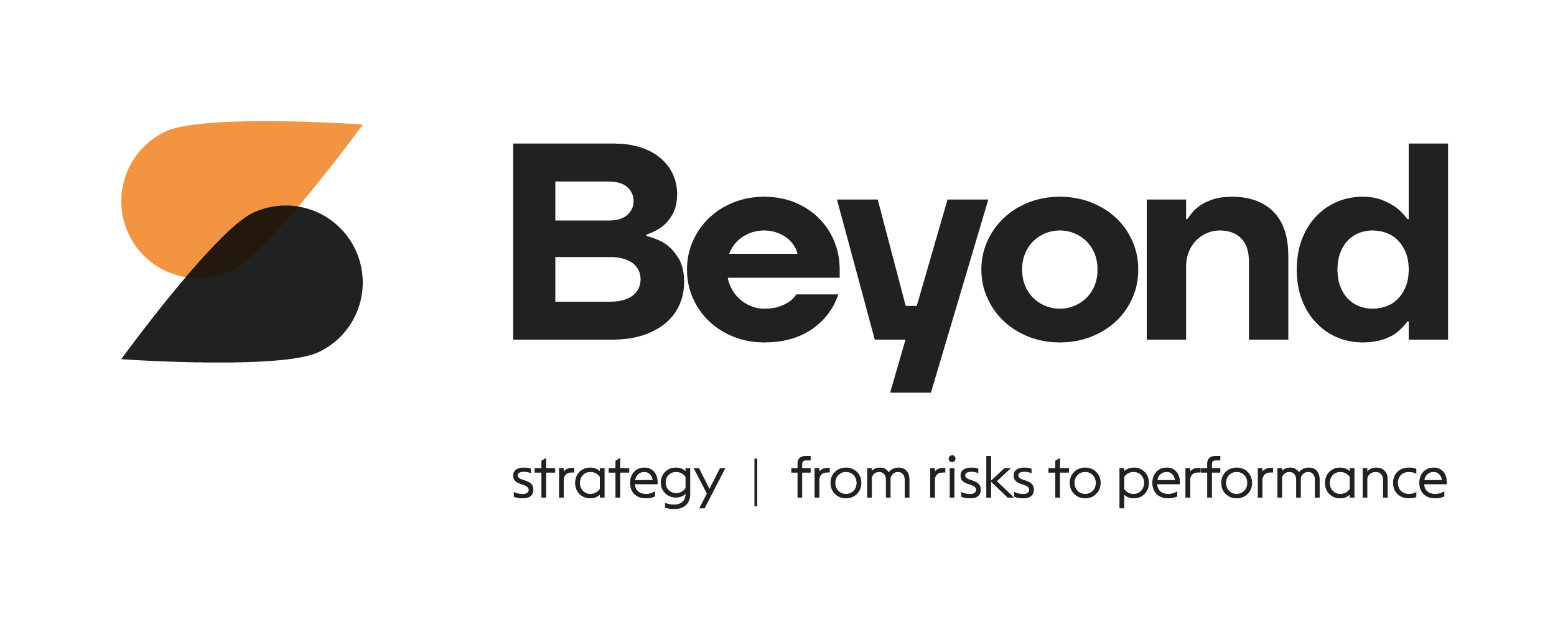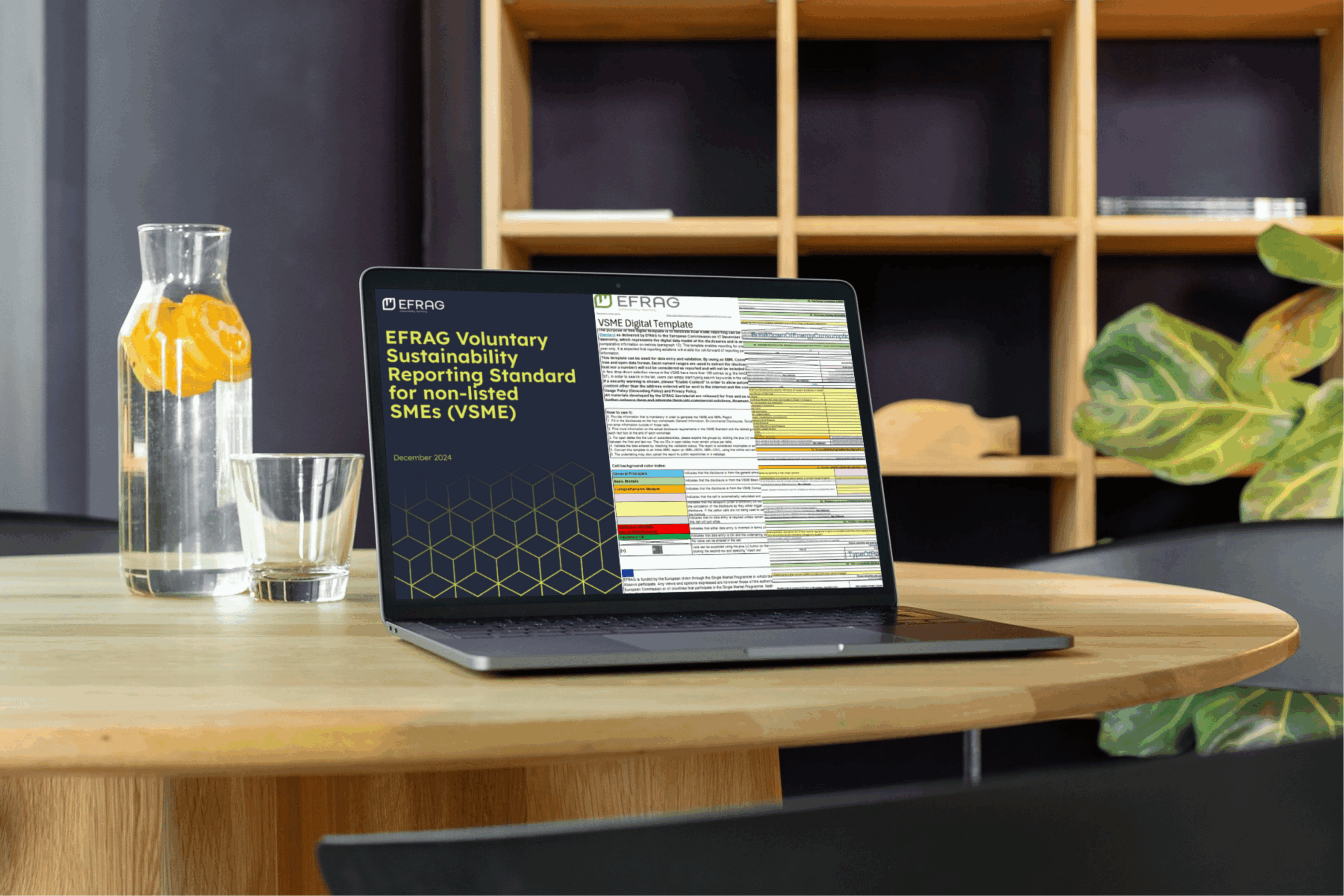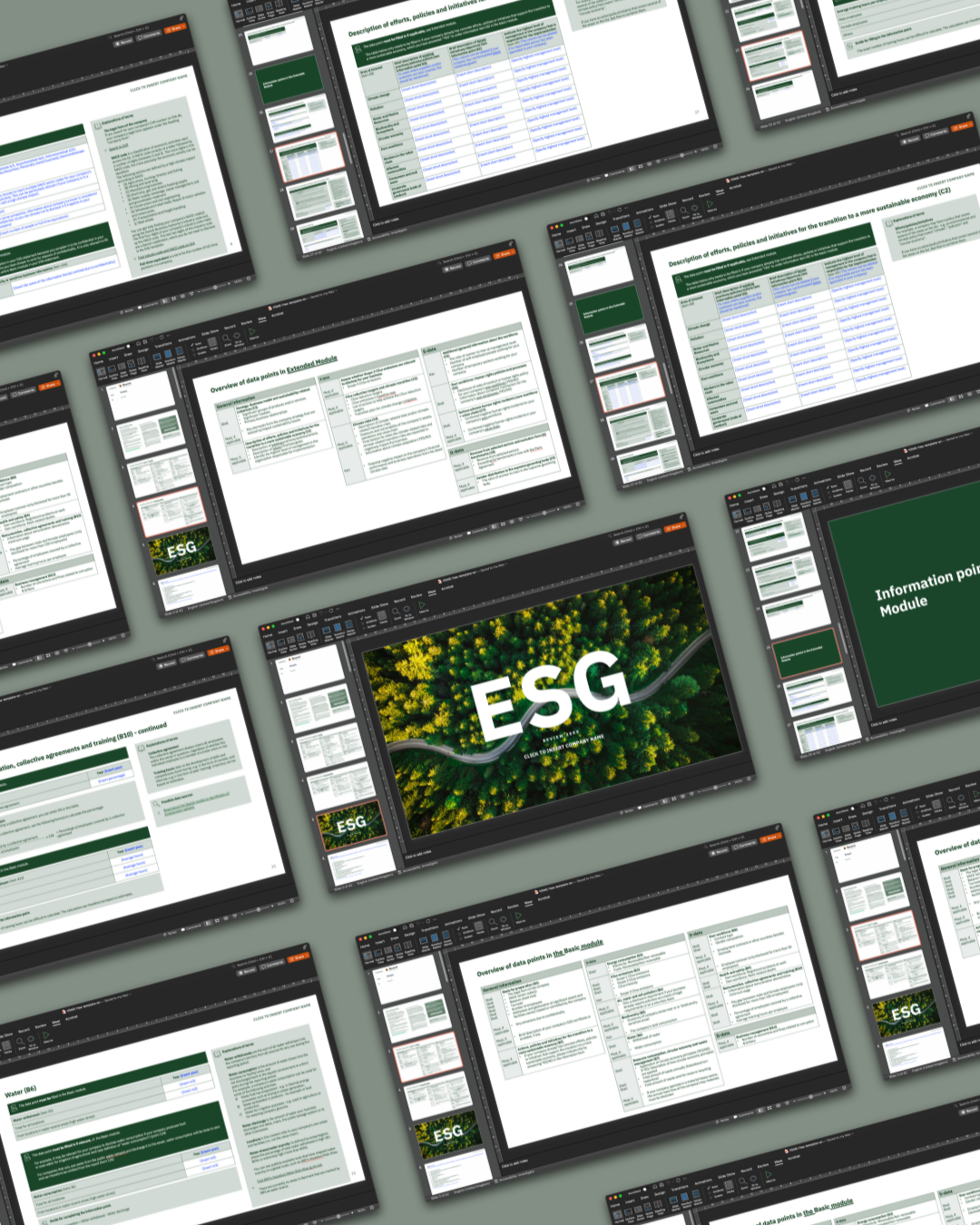The European Financial Reporting Advisory Group (EFRAG) has just launched a new free ESRS Statistics and Report Portal. It’s a game-changing tool designed to bring transparency and structure to the evolving world of CSRD reporting. But what does it actually mean for Swiss SMEs preparing to comply—or supporting EU clients who must?
In this article, we unpack the portal’s key features, explain why it matters for non-EU firms, and offer some practical ways Swiss SMEs can use this tool to stay ahead of the curve.
What Is the EFRAG ESRS Portal?
The portal provides open access to anonymized CSRD reports published under the European Sustainability Reporting Standards (ESRS). For each published statement, it tracks:
- Which ESRS datapoints were disclosed
- Whether they were reported as material, non-material, or omitted
- The scope of entities covered in each report
- Sector and size of the reporting company
This information will expand over time as more companies file their 2025 statements.
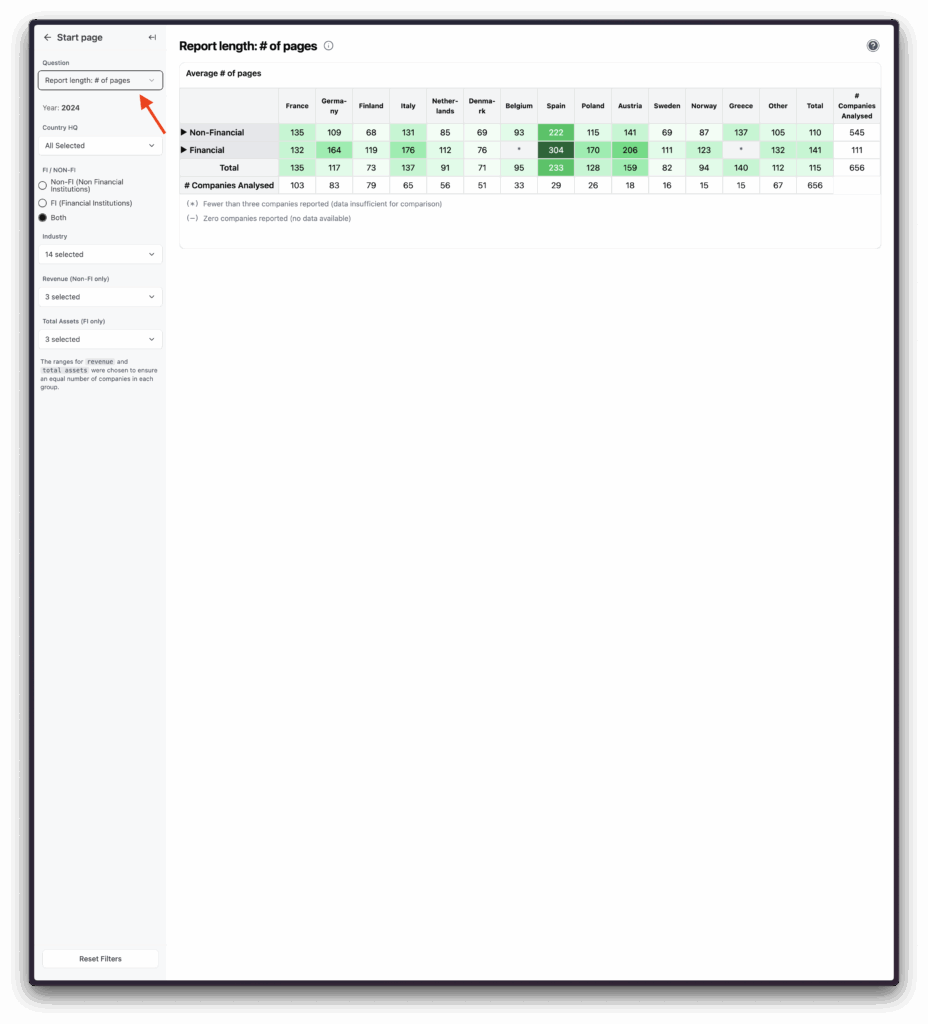
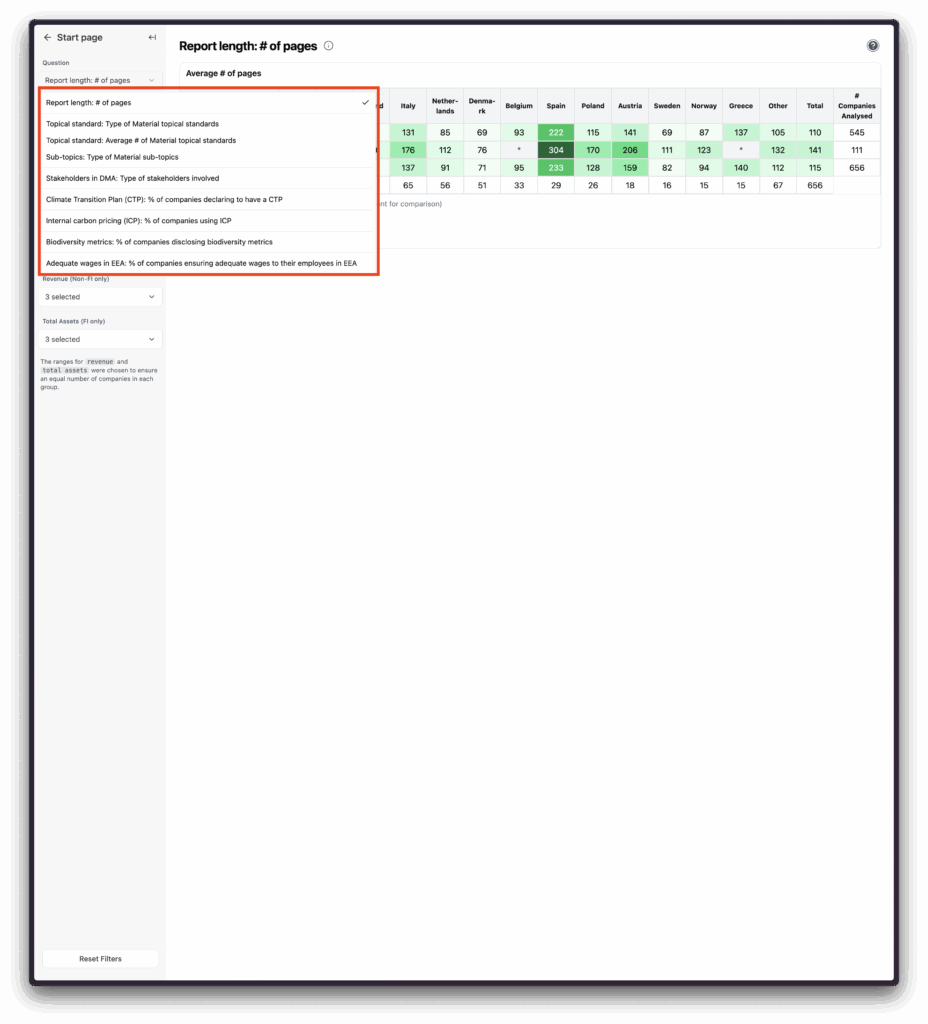
Why This Matters for Swiss SMEs
Even if you’re not directly caught by the CSRD today, the portal gives you a preview of market expectations—especially if you:
- Operate in the EU, directly or through subsidiaries
- Supply larger companies who will cascade ESG data requests
- Want to prepare proactively for future obligations or investor scrutiny
For SMEs already preparing a voluntary VSME report (e.g., using our Beyond-VSME platform), this portal offers a valuable benchmarking tool to assess how your disclosures compare.
3 Ways to Use the Portal Strategically
1. See What Your Peers Are Disclosing
Filter by sector or region to see what topics others consider “material.” If your competitors are disclosing on E1-5 (GHG emissions) but you’re not, ask why—and whether you should reconsider.
2. Understand Which Datapoints Are Being Skipped
Not all disclosures are mandatory. But if 80% of companies in your space are omitting a datapoint, that might indicate it’s not critical—or conversely, that you could stand out by addressing it.
3. Plan Your Roadmap with Real Data
Use actual disclosure patterns to prioritize your CSRD efforts. For example, if E4-1 (biodiversity transition plans) is rarely addressed but high-risk in your supply chain, it may deserve early attention.
Want to Explore Your Reporting Readiness?
If you’re unsure where to start—or if your current approach aligns with industry practices—our team can help. Whether you’re looking to build a first VSME report or do your Double Materiality Assessment (DMA), we offer practical tools tailored to your context.
📅 Book a free discovery call or explore our tiered service offerings.
Stay informed. Stay ahead. Let regulation work for you—not against you.
📩 Contact our team | 💬 Book a call | 🌐 Learn more about our VSME services
